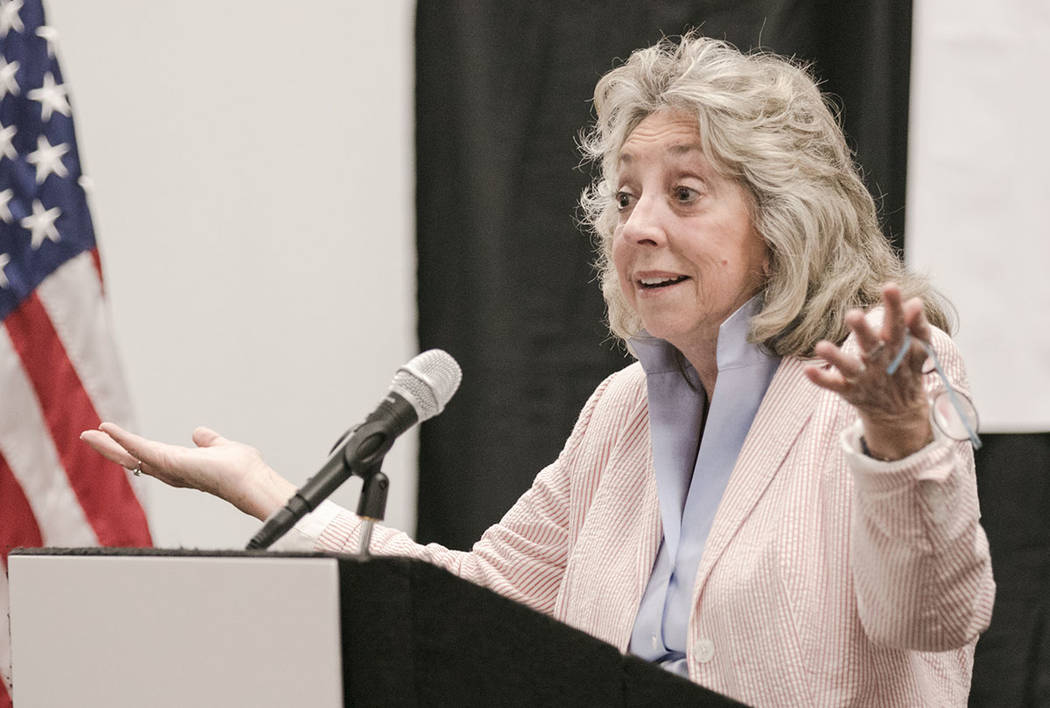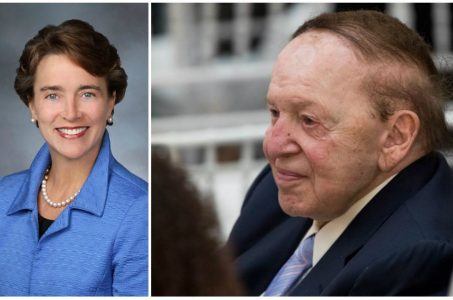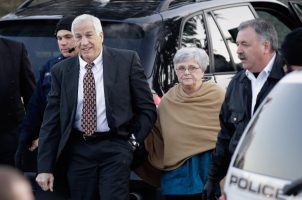Nevada US Congresswoman Dina Titus Urges DOJ to Leave 2011 Wire Act Opinion Alone
Posted on: March 7, 2018, 05:00h.
Last updated on: March 7, 2018, 03:05h.
US Rep. Dina Titus (D-Nevada) is calling on the Department of Justice (DOJ) to preserve the 2011 Wire Act opinion made by the federal agency that essentially allowed individual states to determine their own internet gambling laws.

While there’s been no indication from the DOJ that the agency is considering reviewing the seven-year-old decision, parties on both sides of the issue continue to make their voices heard.
In a letter this week to Deputy Attorney General Rod Rosenstein, Titus surmised a legal and regulated online gambling market better protects gamblers who would otherwise patronize an offshore site.
“Internet gambling will not go away with a reversal of the Wire Act guidance; it will merely push more consumers into black markets,” Titus declared. “I encourage you to carefully study this issue … before reversing Wire Act guidance in a way that could eliminate jobs in the online gaming industry, infringe on states’ rights, and exacerbate growth of the illegal online gaming market.”
In 2011, the DOJ Office of Legal Counsel, responding to an inquiry from lawmakers in New York and Illinois seeking clarification on selling lottery tickets online, opined that the longstanding Wire Act banned wire transmissions related to sports betting, but not gambling in general.
The opinion reached by then-Assistant Attorney General Virginia Seitz paved the way for states like Nevada, New Jersey, and Delaware to authorize online gambling. Titus is Las Vegas’ representative in the US House.
Court Not in Sessions’ Hands
The reason Rep. Diane Titus addressed her letter to Rosenstein and not Attorney General Jeffrey Sessions is the fact that the DOJ boss has recused himself from Wire Act matters.
Though he told the Senate Judiciary Committee during his confirmation hearing in February 2017 that he was “shocked” at the DOJ’s Wire Act opinion and would consider reviewing the matter, Sessions announced in July he would be excusing himself from the topic due to a conflict of interest.
After reports surfaced last March that claimed Sessions might have had contact with Russian government officials during the 2016 US presidential election, the attorney general hired lawyer and longtime friend Charles Cooper to provide counsel.
Cooper is a former lobbyist that represented Las Vegas Sands billionaire Sheldon Adelson’s Coalition to Stop Internet Gambling, an organization that pushed congressional efforts to overturn the 2011 Wire Act opinion.
Cooper’s collaboration with Sessions was reason for the AG removing himself from future discussions on the subject.
Opposition Remains
Titus’ Wire Act letter to the DOJ comes after Senators Lindsey Graham (R-South Carolina) and Dianne Feinstein (D-California) wrote Rosenstein on the same concern last fall.
But unlike the Nevada congresswoman who believes regulated internet gambling is a safer bet than offshore networks, Graham and Feinstein opined that online casinos “prey on children and society’s most vulnerable.” Graham was the author of the Senate’s version of the Restoration of America’s Wire Act (RAWA), legislation that was pushed by Adelson by way of campaign contributions.
Titus stated that the Graham and Feinstein letter “uses fear tactics and hyperbolic language,” and that “in Nevada there are effective technological safeguards in place to verify age and location.”
Related News Articles
Pennsylvania Online Gambling Market to Launch Before Year’s End
Most Popular
This Pizza & Wings Costs $653 at Allegiant VIP Box in Vegas!
Sphere Threat Prompts Dolan to End Oak View Agreement
Fairfax County Officials Say No NoVA Casino in Affluent Northern Virginia
Atlantic City Casinos Experience Haunting October as Gaming Win Falls 8.5%
Most Commented
-
VEGAS MYTHS RE-BUSTED: Casinos Pump in Extra Oxygen
— November 15, 2024 — 4 Comments -
Chukchansi Gold Casino Hit with Protests Against Disenrollment
— October 21, 2024 — 3 Comments
















No comments yet